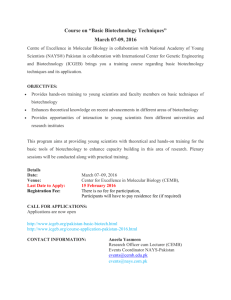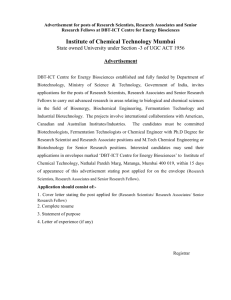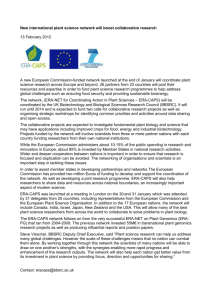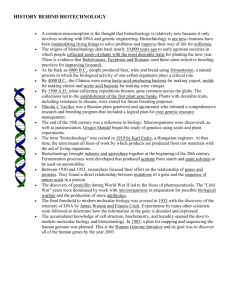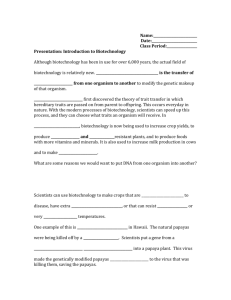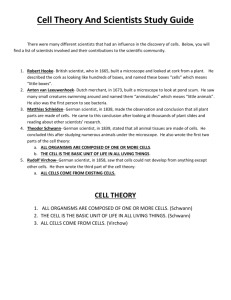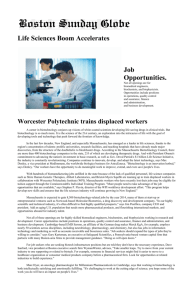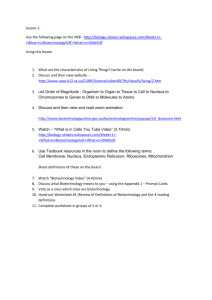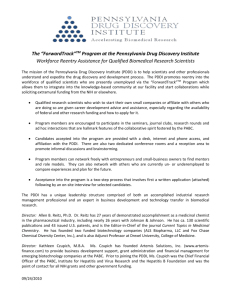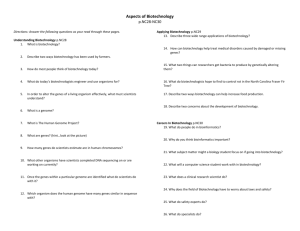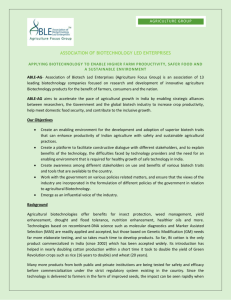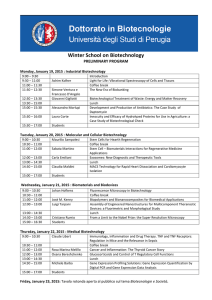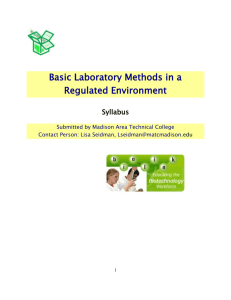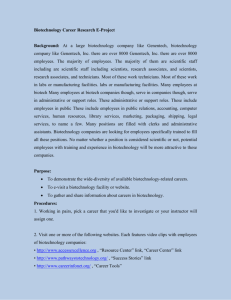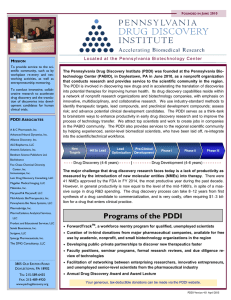What is Food Science?
advertisement
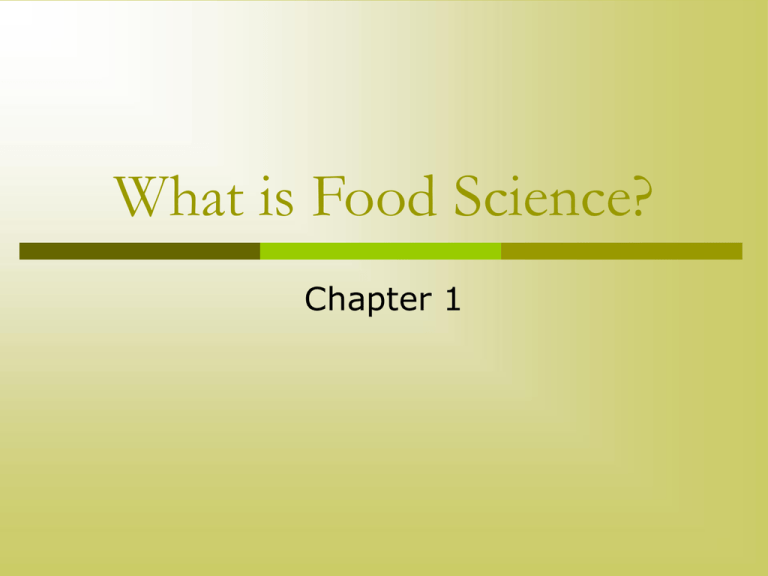
What is Food Science? Chapter 1 History of Food Science Food Science = is the study of producing, processing, preparing, evaluating, and using food. 1696, Sir Francis Bacon wanted to see how stuffing the bird with snow conserved the meat – as a result from the experiment Bacon developed bronchitis and died soon 1st food science ”textbook” were cookbooks A recipe, after all is based on facts that cooks have learned by trial and error 1896 – Boston Cooking School Cook Book was thought to awaken food knowledge George Washington Carver help develop over 100 products from peanuts, pecans, and sweet potatoes Early 1900’s advances in technology gave rise to commercial food processing 1925 Clarence Birdseye helped the frozen foods industry get started with a refined method for quickly freezing fish Food Science Today Like other science, food science has advanced rapidly in recent decades The diet-conscious can not choose from many fat-free products, including ice cream and cookies. Poultry producers can spray chicken with a substance that the birds consume as they clean it from their feathers. This substance then kills disease causing germs in the chickens’ intestines Food Production Food Chain = through this process, matter and energy transfer between organisms as food First, seeds are planted and grown Animals eat the plants, and people eat both With nourishment, people plant more seeds, and the process begins again Food production has developed many techniques for raising crops and animals of food. Food Production Continued Biotechnology = scientist use the tools of modern genetics in the age-old process of improving plants, animals, and microorganisms for food production. Modern biotechnology allows food producers to do the same, but with greater understanding and selectivity Through biotechnology, scientists improve agricultural products by enhancing or eliminating traits that a plant or animal inherits Ex. in one achievement, a way to turn on a plant’s natural defense against disease and insects was found, producing an alternative chemical pesticide Food Production Continued Food scientists involved in productions typically specialize in one food group and its components ex fish, cereal grains etc. Microbiologists – research molds, bacteria and other organisms Supply and Demand affects pricing – why? Food Processing and Food Preparation Food that has been produced and puts it through a multitude of steps to create a final marketable result. Developing a more economical processing methods Work generally takes place in a lab, working with other specialist ex. engineers, microbiologists, flavor experts etc. Quality control is used on a daily basis, to make sure final product meets government, industry, and company standards Nutrition information on a food label comes from scientists who test food for nutrient content Determining yield, times, temperatures and other factors result in multiple tests to make sure the consumer receives the best product possible. Evaluation and Utilization of Food Food scientist work with other experts to refine a product’s taste, texture, appearance, and other qualities. Try varying ingredients and preparation methods to design the most pleasing and profitable food product. Food design consultant might suggest changing the sweetener, while a flavor chemist will be able to chemically alter the product and affect its taste. – cost and ease of production determines a big factor Consumers deplete our natural recources, alternative resources are being developed. Nutrition Science & Science in Real Life Scientists deal with atoms, molecules and cells, from their research comes new information and developments Questions – Why do fresh bananas turn brown? What do you put on bananas to prevent them from turning brown? What other food turns brown when you slice in to them? Questions – Chapter 1 1. 2. 3. 4. 5. 6. What branches of science are most strongly connected with food science? Describe the impact of two people on the advancement of food science. What is biotechnology? Give me two examples. What are three responsibilities of a quality control specialist? Why do people need to make thorough use of the foods grown on earth? Develop five questions that you have about the science of food.

